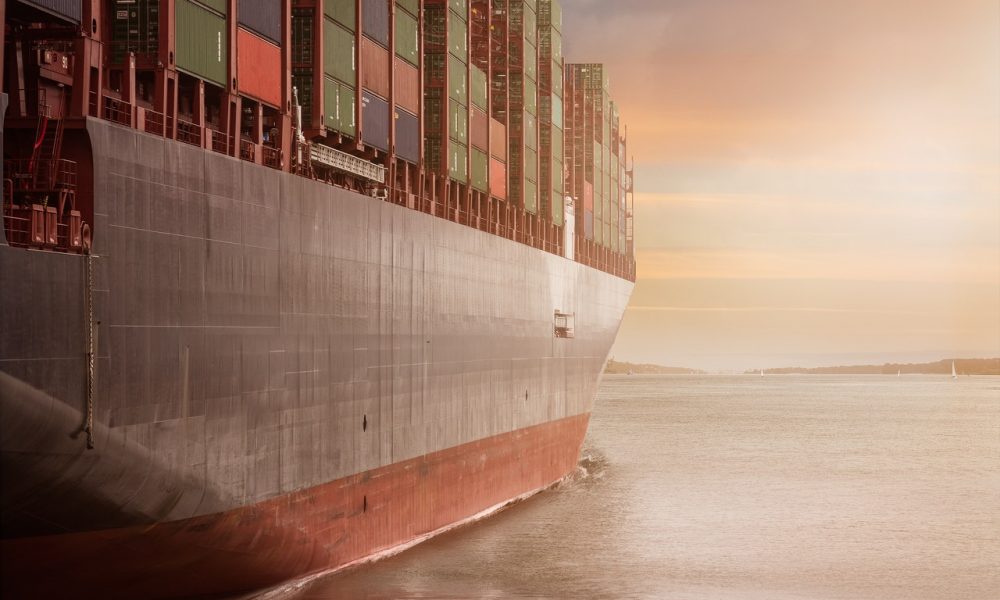Brexit fears began to hit UK trade as early as 2015 – new research – Philippine Canadian Inquirer
[ad_1]
After the UK officially left the EU at the end of 2020, it experienced a dramatic drop in trade. The media were full of stories on long customs stops and empty shelves in supermarkets. This included steep drops in exports of agricultural products like beef, milk and cheese, for example, after UK and EU failed to agree an alignment of standards that would have allowed free trade to continue.
There has since been some improvement, with the last digits showing that exports and imports with the EU in the three months to August 2021 were better than the previous three months. Likewise, however, there is proof that the UK lost market share in Europe due to Brexit, as EU imports from other countries picked up following the COVID crisis.
Yet the raw export and import figures alone cannot tell you much about what happened to UK trade. You need to disentangle the effects of Brexit from a myriad of other variables that can skew the numbers, including COVID. This is a complicated issue that will take some time to resolve, although the relative sharp decline in UK exports to Europe suggests Brexit is the main culprit.
At the same time, however, it would be wrong to focus too much on 2021 when examining the effects of Brexit on UK trade. We have just published a new paper by examining how this affected UK trade between 2015 and 2018. This shows for the first time that Brexit fears have weakened the UK’s trade position long before the vote to leave the EU even does not take place. It also indicates a long-term adjustment in trade relations which will continue for many years.
Our approach
We initially started looking at the effects of the Brexit vote in 2017. same method which actually won the Nobel Prize in economics, we sought to eliminate further effects on the data by comparing UK exports to select EU countries before and after the June 2016 referendum with d other pairs of comparable trading nations. We have chosen pairs of nations to compare from a wide range of possibilities, for example using the trade between Japan and South Korea to compare France and the UK.
When we published the first results at the end of 2018, we reported that same shortly before the vote in 2016, Brexit concerns were already curtailing Britain’s trade with the EU and elsewhere. This was consistent with a previous study by another team of researchers on the effects of voting on UK GDP, as well as subsequent studies on foreign direct investment and productivity.
Since then we have extended and revised considerably our study. Unlike almost every other study, we now take into account the likelihood that Brexit concerns began to have an economic effect even further in time – around the time of the Tories’ surprise general election victory in London. May 2015. Indeed, Britain’s merchandise exports to non-EU countries have also started to decline.
The most likely explanation for these results is that UK goods exporters rely heavily on EU countries as part of their supply chain. Even a modest increase in uncertainty surrounding these chains seems to have persuaded customers to look elsewhere, whether or not they are in the EU. Notably, UK imports of goods from the EU and elsewhere only started to decline after the referendum.
By the time we get to March 2018 in our new paper, Britain’s merchandise exports to the EU were already 20-25% below trend, while its merchandise exports to non-EU countries. the EU were 15% below trend. We also extended our analysis to services, which account for around half of UK exports. Here we only have data on aggregate exports, rather than trade with specific partners, but again we see that UK exports started to decline in 2015, albeit more after the referendum, and were around 8 % lower than the trend at the start of 2018.
What does that mean
The declines in exports to the EU since January are part of a longer and larger drop dating back to 2015. Changing trade patterns take time for companies to find new partners or renew or terminate contracts. This means that much of Brexit’s effect on trade started with importers from other countries anticipating difficulties and making changes to their suppliers long before the UK officially left the EU.
Since these are such slow processes, it is likely that adjustments will continue for many years to come. Thus, despite the UK’s agreements with non-EU countries (which, before the Trade agreement with Australia, were essentially renewals of existing agreements), its competitiveness around the world has been affected by the effects of Brexit on UK supply chains.
One caveat should be that part of the drop in demand for UK products could be offset by a cheaper pound. Sterling Suddenly falls as the referendum approaches, and although it has remained at about the same level since 2016, many believe it fall further in the future due to Brexit. If so, it could mean increased demand for UK exports, but it would also mean imports will be more expensive. So even though, say, Australian wine might no longer bear tariffs, its price might still increase overall. At a time when inflation is already causing concern, this is another factor that could push prices up.![]()
Terence huw edwards, Lecturer in economics, Loughborough University and Mustapha Douch, Lecturer in economics, University of Edinburgh
This article is republished from The conversation under a Creative Commons license. Read it original article.
[ad_2]

